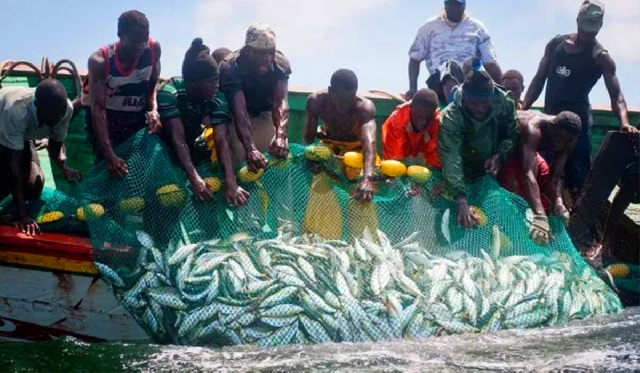Ghana takes a bold step towards sustainable fishing with new legislation
 Fishing
Fishing
Wednesday, July 16, 2025, marked a historic moment for Ghana as Parliament passed a groundbreaking law aimed at transforming the nation’s fisheries sector.
For years, Ghana’s fisheries resources have been vital to the country’s economy, providing jobs, boosting exports, and feeding millions. But with increasing pressures from illegal fishing, environmental concerns, and climate change, it became clear that a new, stronger legal framework was needed.
This afternoon, Parliament unanimously approved the Fisheries and Aquaculture Management Act, a comprehensive law designed to protect Ghana’s waters and ensure that fishing activities are sustainable for generations to come.
At the heart of this new legislation is the creation of the Fisheries Commission—a robust body charged with overseeing the long-term conservation and responsible use of fishery resources, both within Ghanaian waters and beyond.
The law introduces a host of new measures aimed at safeguarding aquatic life.
For instance, the government can now declare marine reserves and inland fisheries zones, establishing protected areas where fishing is restricted to allow ecosystems to recover and thrive.
There are also provisions for closing seasons and designated exclusion zones, giving nature a much-needed breather and helping fish populations rebound.
But it’s not just about protection.
The Act emphasises the importance of involving local fishers, traditional leaders, environmental experts, and government agencies in managing these resources.
It creates committees that bring everyone to the table, fostering cooperation and shared responsibility—an approach that has been proven to work in other parts of the world.
Behind the scenes, the Fisheries Commission is set to be a well-organised institution, with divisions dedicated to aquaculture, marine fisheries, legal matters, and aquatic health.
It will be financed through a dedicated fund, supported by licensing fees, fines for illegal activities, and government contributions—all aimed at strengthening the sector and promoting sustainable growth.
Enforcement is a major focus, too.
Officers will now be equipped with technology to monitor activities at sea, and they will have the authority to inspect vessels, investigate violations, and enforce penalties.
Those caught engaging in illegal fishing could face hefty fines, vessel confiscations, or even bans from operating in Ghana’s waters—a clear message that illegal activities will no longer be tolerated.
The new law also prioritises Ghanaian workers, requiring that at least 75% of the crew on licensed vessels are citizens, and sets strict standards for vessel importation and construction.
It encourages responsible aquaculture practices, ensuring fish farms operate safely and sustainably, with measures to prevent diseases and protect the environment.
All these efforts align Ghana with international standards, reaffirming its commitment to global fisheries agreements. And with the repeal of the old Fisheries Act of 2002, this new law paves the way for a more responsible, sustainable, and prosperous future for Ghana’s fisheries sector.
As the country looks ahead, this legislation promises a brighter future—one where the waters are protected, the people are empowered, and Ghana’s rich marine resources continue to support the nation’s growth and development for years to come.
Source: Classfmonline.com/Havilah Kekeli







